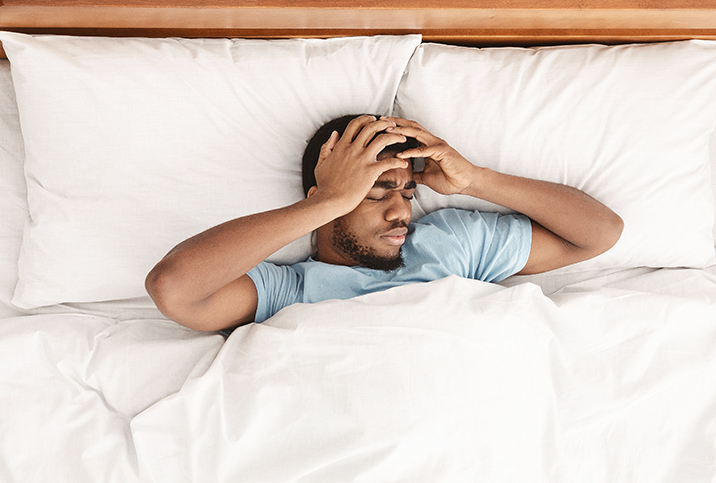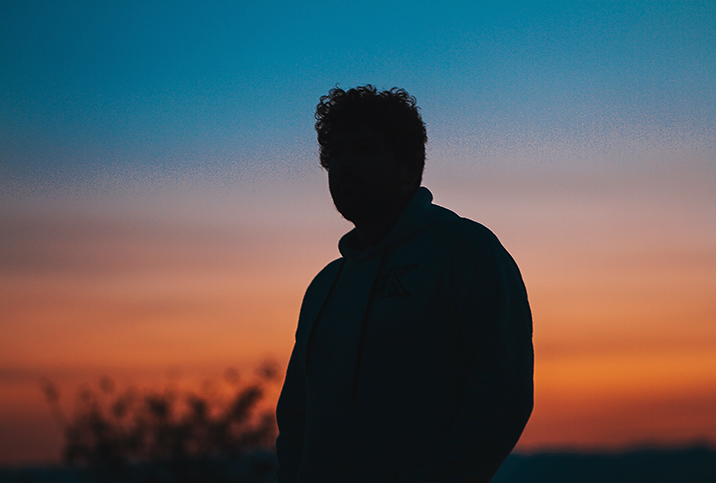Low-T and Sleep–What's the Link?

There are many reasons why people might find it hard to get some shut-eye. Stress, caffeine, noisy neighbors, a snoring partner—a multitude of things can disturb us in the night and keep us from feeling properly rested. Sleepless nights and groggy days may prompt us to look for answers within our own biology. Some researchers have looked at the link between sex hormones and issues with sleeping, but many of these statistics focus on higher estrogen equating to better sleep.
It's natural to want answers. However, "the relationship of low testosterone to sleep is not well studied and therefore little is known for sure," said Charles Samuels, MD, medical director for the Centre for Sleep in Calgary. Low testosterone does not necessarily affect sleep. And more importantly, poor sleep is not a sign of low testosterone."
However, research on the topic differs within the medical field. According to a 2011 University of Chicago study, low T and sleep are linked. A professor in medicine, Eve Van Cauter, discovered that men who sleep less than five hours a night have significantly lower levels of testosterone.
Why do people assume low T and sleep are linked?
Samuels explained that while there have been some studies—like the 2017 study published in The Aging Male—looking into the relationship between low testosterone and sleep, focusing on older men (65+) with sleep apnea, they have only found casual links. The studies indicated that as we age, two things happen at the same time: First, our sleep patterns change, and, second, testosterone levels decline (for both men and women, though the changes are more common with men). Older men, therefore, found that it took longer to fall asleep, and their sleep was more fragmented.
This evidence may seem to suggest that low testosterone is the cause. According to Samuels, however, there is no direct connection. The lack of sleep is more likely to be caused by age or obesity. It is believed that testosterone replacement can even put men at increased risk for sleep apnea (but that also hasn't been conclusively proven), according to The Aging Male study.
However, testosterone production does peak in the first few hours after waking up from slumber, according to a 2015 study in Adaptive Human Behavior and Physiology. Getting at least six hours of sleep, going to bed consistently and waking up at a regular time can increase testosterone production, too.
What are some known symptoms of low T?
According to the American Urology Association, some of the symptoms accompanying low T can include low sex drive, fatigue, reduced muscle mass, irritability, erectile dysfunction and depression. Again, other factors may also cause these symptoms, such as using opioids, certain birth conditions, diabetes and obesity.
If you're really worried about low T, it's always best to talk to a physician for assessment or a referral to an endocrinologist.
So, how can I sleep better?
Whatever the cause, sleep expert Olivia Arezzolo, BSocSc and certified sleep psychiatrist, recommended following a holistic bedtime routine to encourage healthy sleep. Reduce your exposure to blue light (i.e. from phones and laptops) and kick the habit of late-night scrolling. Research shows using a phone in the last hour before bed makes it harder to fall asleep and increases restlessness. A 2014 study published in Photochemistry and Photobiology found bright household light may delay the natural production of melatonin (a sleep hormone), making people more alert in the evening.
Applying lavender to pulse points can improve sleep quality and reduce anxiety, which can contribute to issues falling asleep, according to a 2010 clinical trial published in the Journal of Clinical Psychopharmacology.
If you need some extra aid, taking a magnesium-based sleep supplement has been proven to reduce anxiety dramatically in just four weeks, according to a 2017 clinical trial published in Nutrients. If you need more professional help, talk to your doctor or a sleep expert to look at other treatment options.
According to Samuel, a lot of assumptions have been made about low T and sleep, but they're just that, assumptions. Age, obesity, mental health and many other factors can impact sleep. Stressing about it can only make it worse. And we all deserve to get a good night's rest.

















